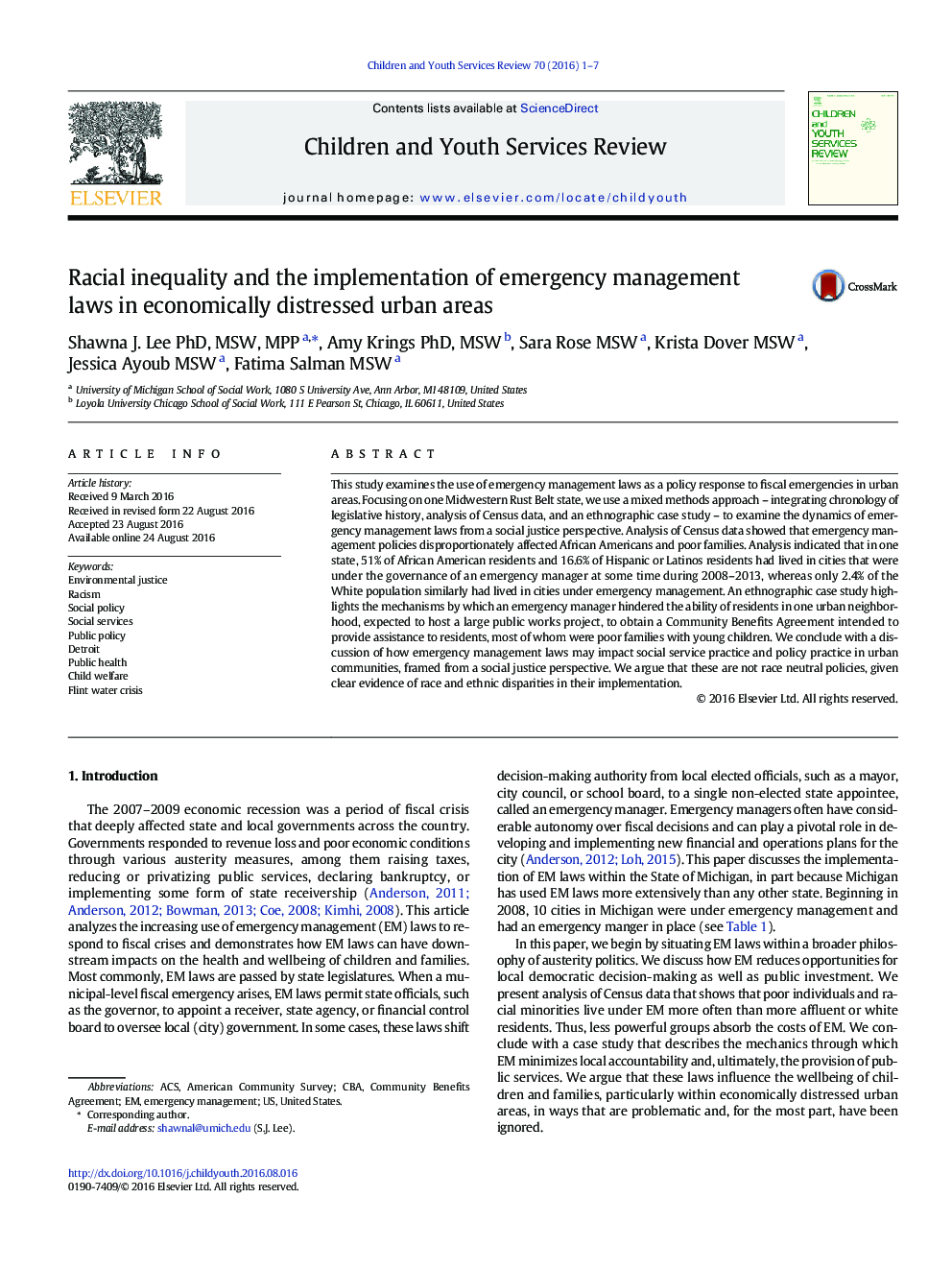| Article ID | Journal | Published Year | Pages | File Type |
|---|---|---|---|---|
| 4936614 | Children and Youth Services Review | 2016 | 7 Pages |
Abstract
This study examines the use of emergency management laws as a policy response to fiscal emergencies in urban areas. Focusing on one Midwestern Rust Belt state, we use a mixed methods approach - integrating chronology of legislative history, analysis of Census data, and an ethnographic case study - to examine the dynamics of emergency management laws from a social justice perspective. Analysis of Census data showed that emergency management policies disproportionately affected African Americans and poor families. Analysis indicated that in one state, 51% of African American residents and 16.6% of Hispanic or Latinos residents had lived in cities that were under the governance of an emergency manager at some time during 2008-2013, whereas only 2.4% of the White population similarly had lived in cities under emergency management. An ethnographic case study highlights the mechanisms by which an emergency manager hindered the ability of residents in one urban neighborhood, expected to host a large public works project, to obtain a Community Benefits Agreement intended to provide assistance to residents, most of whom were poor families with young children. We conclude with a discussion of how emergency management laws may impact social service practice and policy practice in urban communities, framed from a social justice perspective. We argue that these are not race neutral policies, given clear evidence of race and ethnic disparities in their implementation.
Keywords
Related Topics
Health Sciences
Medicine and Dentistry
Perinatology, Pediatrics and Child Health
Authors
Shawna J. PhD, MSW, MPP, Amy PhD, MSW, Sara MSW, Krista MSW, Jessica MSW, Fatima MSW,
